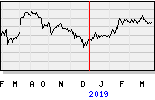
what's FDCA,
Furandicarboxylic acid (FDCA) is an organic chemical compound consisting of two carboxylic acid groups attached to a central furan ring. It was first reported as dehydromucic acid by Rudolph Fittig and Heinzelmann in 1876, who produced it via the action of concentrated hydrobromic acid upon mucic acid.[1] It can be produced from certain carbohydrates and as such is a renewable resource, it was identified by the US Department of Energy as one of 12 priority chemicals for establishing the “green” chemistry industry of the future.[2] Furan-2,5-dicarboxylic acid (FDCA) has been suggested as an important renewable building block because it can substitute for terephthalic acid (PTA) in the production of polyesters and other current polymers containing an aromatic moiety.[3][4][5] go for more https://en.wikipedia.org/wiki/2%2C5-Furandicarboxylic_acid
Despite the value of plastic to our current society, there are widespread concerns on littering, the heavy dependency on finite resources, as well as the level of CO2 emissions. Questions are therefore now being asked about whether we can go beyond these limits to find more sustainable alternatives.
Introducing: PEF
We are pioneering a highly efficient process to produce 2,5-Furandicarboxylic acid (FDCA) as a monomer for the bioplastic, polyethylenefuranoate (PEF). Derived from sugars using bio-fermentation, FDCA has the potential to replace oil-based terephthalic acid in PET and a wide variety of other plastics. By substituting terephthalic acid with FDCA, we can make PEF – a sustainable bioplastic that has a similar chemical structure to PET. Unlike PET, PEF can be produced 100% biobased – boosting the sustainability credentials in key applications, such as packaging.
Making PEF a reality
PEF bioplastic has already attracted a lot of attention as a promising material across several industries, as manufacturers can see their potentially huge impact on the world. The benefits are clear. For food and beverages, for example, PEF enables consumers to keep products fresher for a longer time than in PET, due to the higher 'barrier' properties of the material. This also reduces the amount of food waste. PEF is also stronger than PET – allowing for further light weighting of a packaging product, saving material and transportation costs.
Choosing biobased plastics like PEF, means you are contributing to the transition towards a circular economy. Not only can PEF be recycled in a similar way to PET, but it is also fully biobased, allowing us to rely less on fossil resources and help reduce carbon dioxide emissions compared to PET – great news for our planet. With these advantages, it’s not hard to see why PEF will replace PET in the coming years.
Corbion: making it happen
Our development of FDCA and PEF are being introduced at a good time, as awareness grows about the benefits of bioplastics over fossil-based plastics.
At Corbion, we are excited to be at the forefront of this innovation, and we welcome the changes to the industry. Through our unique biotechnology methods, we have been putting our 85 years of expertise to good use – making biobased building blocks and plastics commercially available for manufacturers across the world. Working together with partners throughout the value chain – from sugar suppliers to brand owners – we are championing endless possibilities for a more sustainable planet.
Want to know more about FDCA in PEF? Contact us via the contact form below
http://www.corbion.com/bioplastics/fdca
